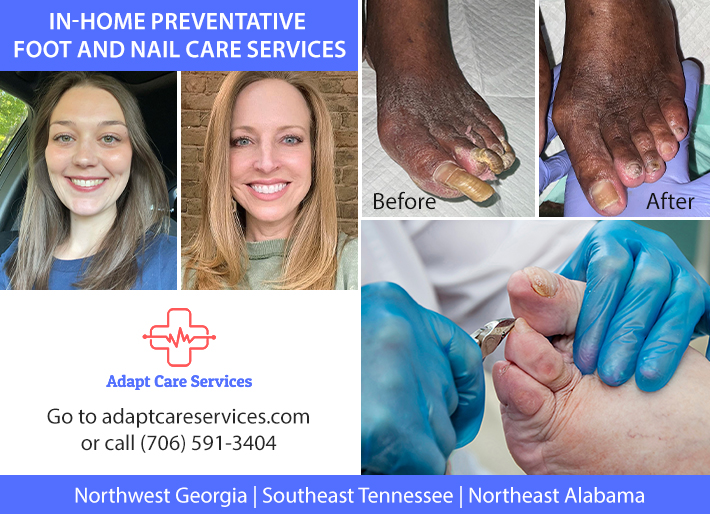
Commissioner Elsberry announced that Redmond Regional Medical Center will be hosting a free COVID-19 vaccine drive in Chattooga County for the first 100 to sign up.
The vaccine drive will be held on April 14th, with the second date on May 5th.
Elsberry said those wishing to sign up should call the Commissioner’s Office at 706-857-0700 to set up the vaccine. The vaccine drive will be at the Chattooga Civic Center located at 44 Highway 48, Summerville, GA 30747.
The vaccine will be administered from 9 am to noon. Redmond will be administering the Pfizer vaccine.
Vaccine eligibility in Georgia is now open to everyone ages 16 and over. Pfizer is the only COVID vaccine approved for teens 16 and 17 years old.
Redmond has the following information on the COVID-19 vaccine posted:
Are there side effects from the vaccine?
After a vaccine is authorized or approved for use, many vaccine safety monitoring systems watch for adverse events (possible side effects). This continued monitoring can pick up on adverse events that may not have been seen in clinical trials. If an unexpected adverse event is seen, experts quickly study it further to assess whether it is a true safety concern. Experts then decide whether changes are needed in U.S. vaccine recommendations. This monitoring is critical to help ensure that the benefits continue to outweigh the risks for people who receive vaccines.
If I have already gotten sick with COVID-19, do I still need to get vaccinated with a COVID-19 vaccine when it’s available?
Due to the severe health risks associated with COVID-19 and the fact that re-infection with COVID-19 is possible, people may be advised to get a COVID-19 vaccine even if they have been sick with COVID-19 before.
At this time, experts do not know how long someone is protected from getting sick again after recovering from COVID-19. The immunity someone gains from having an infection, called natural immunity, varies from person to person. Some early evidence suggests natural immunity may not last very long. We won’t know how long immunity produced by vaccination lasts until we have a vaccine and more data on how well it works. Both natural immunity and vaccine-induced immunity are important aspects of COVID-19 that experts are trying to learn more about, and CDC will keep the public informed as new evidence becomes available.
Why would a vaccine be needed if we can do other things like social distancing and wearing masks, to prevent the virus that causes COVID-19 from spreading?
Stopping a pandemic requires using all the tools available. Vaccines work with your immune system so your body will be ready to fight the virus if you are exposed. Other steps, like covering your mouth and nose with a mask and staying at least 6 feet away from others, help reduce your chance of being exposed to the virus or spreading it to others. Together, COVID-19 vaccination and following CDC’s recommendations to protect yourself and others will offer the best protection from COVID-19.
Do I need to wear a mask and avoid close contact with others if I have received two doses of the vaccine?
Yes. While experts learn more about the protection that COVID-19 vaccines provide under real-life conditions, it will be important for everyone to continue using all the tools available to us to help stop this pandemic, like covering your mouth and nose with a mask, washing hands often, and staying at least 6 feet away from others. Together, COVID-19 vaccination and following CDC’s recommendations for how to protect yourself and others will offer the best protection from getting and spreading COVID-19.
Experts need to understand more about the protection that COVID-19 vaccines provide before deciding to change recommendations on steps everyone should take to slow the spread of the virus that causes COVID-19. Other factors, including how many people get vaccinated and how the virus is spreading in communities, will also affect this decision.
When can I stop wearing a mask and avoiding close contact with others after I have been vaccinated?
There is not enough information currently available to say if or when CDC will stop recommending that people wear masks and avoid close contact with others to help prevent the spread of the virus that causes COVID-19. Experts need to understand more about the protection that COVID-19 vaccines provide before making that decision. Other factors, including how many people get vaccinated and how the virus is spreading in communities, will also affect this decision.
Does immunity after getting COVID-19 last longer than protection from COVID-19 vaccines?
The protection someone gains from having an infection (called natural immunity) varies depending on the disease, and it varies from person to person. Since this virus is new, we don’t know how long natural immunity might last. Some early evidence — based on some people — seems to suggest that natural immunity may not last very long. Regarding vaccination, we won’t know how long immunity lasts until we have a vaccine and more data on how well it works. Both natural immunity and vaccine-induced immunity are important aspects of COVID-19 that experts are trying to learn more about, and CDC will keep the public informed as new evidence becomes available.
Facts about COVID-19 vaccines
- FACT: COVID-19 vaccines will not give you COVID-19
- FACT: COVID-19 vaccines will not cause you to test positive on COVID-19 viral tests
- FACT: Getting vaccinated can help prevent getting sick with COVID-19
- FACT: People who have gotten sick with COVID-19 may still benefit from getting vaccinated
- FACT: Receiving an mRNA vaccine will not alter your DNA
Get more information about the vaccine from the CDC














